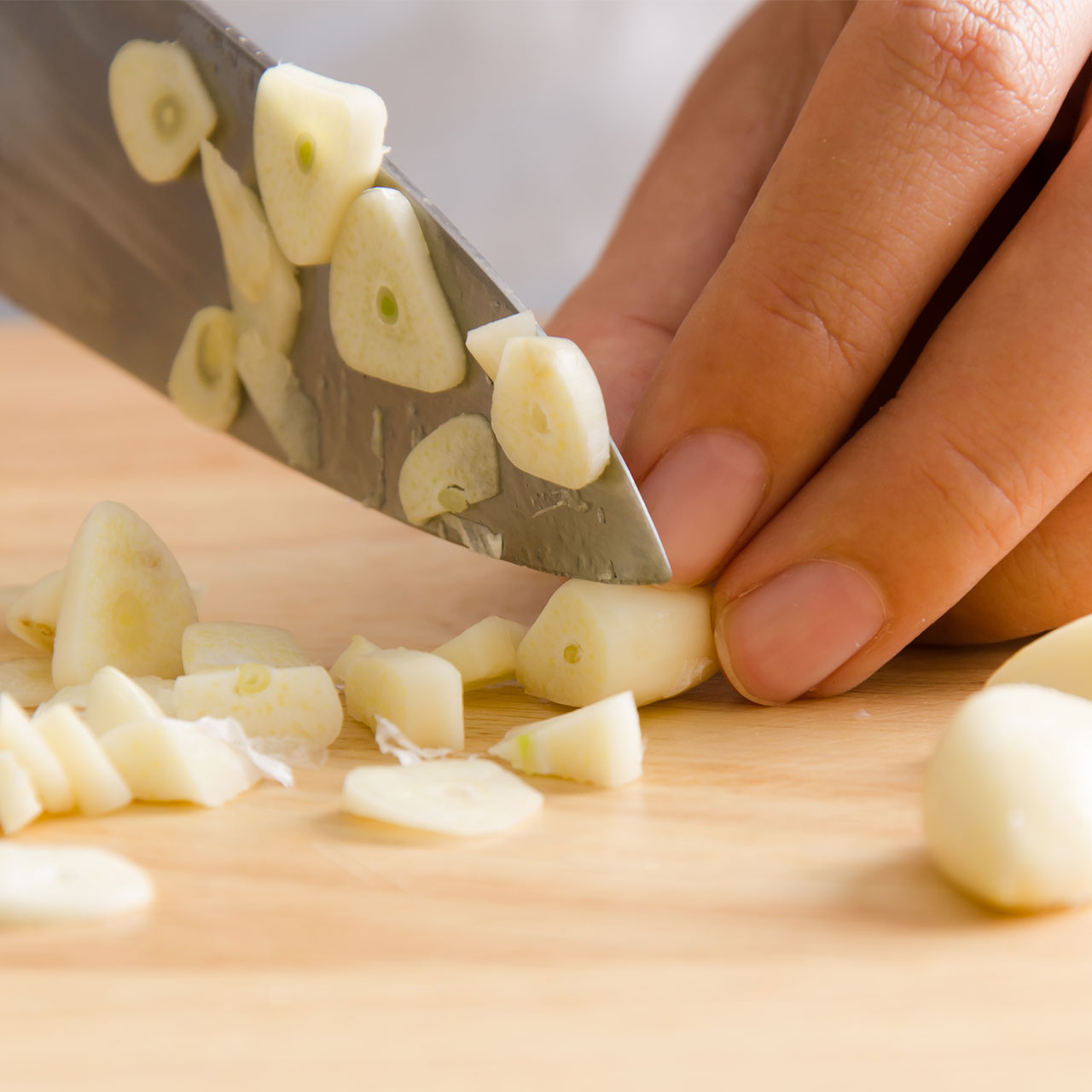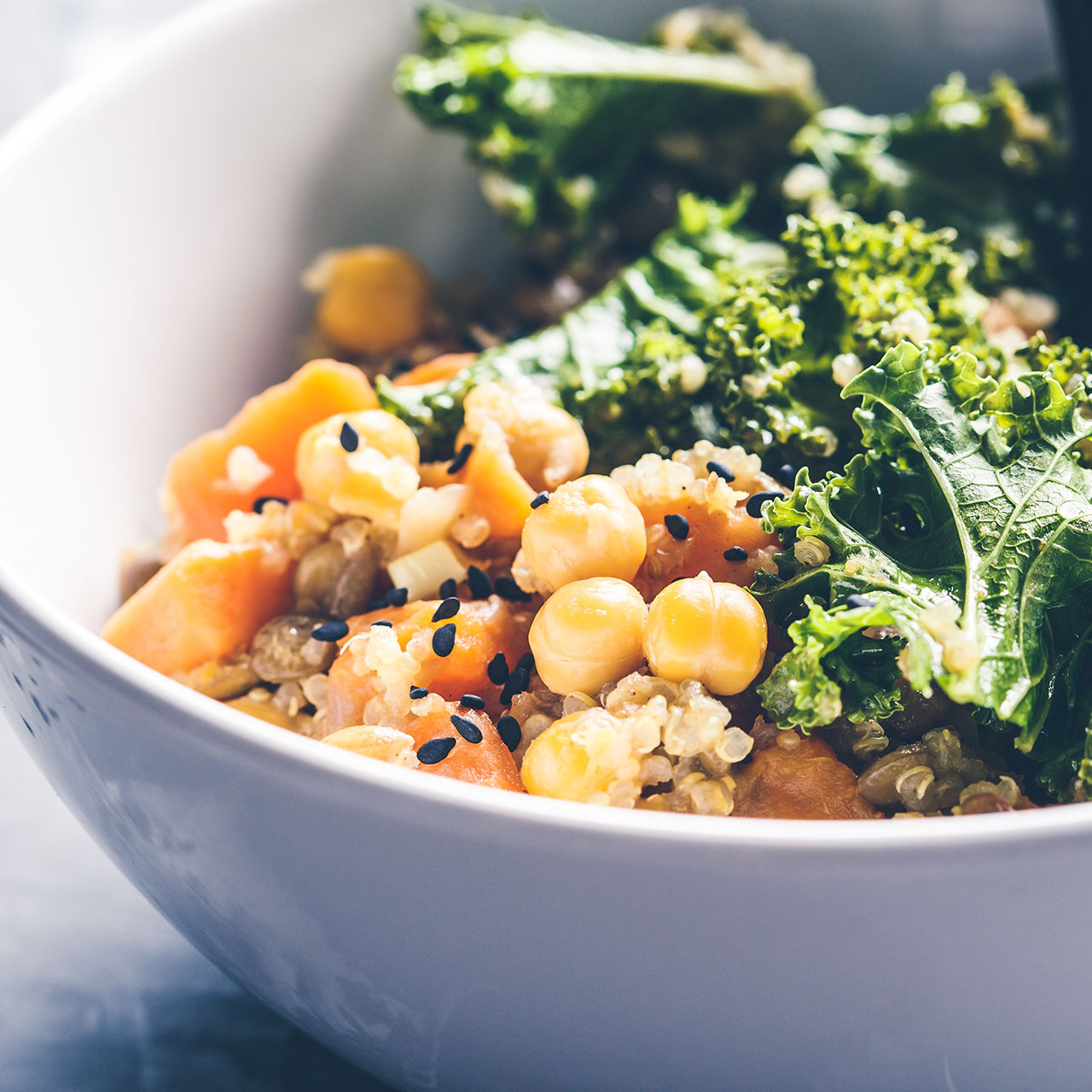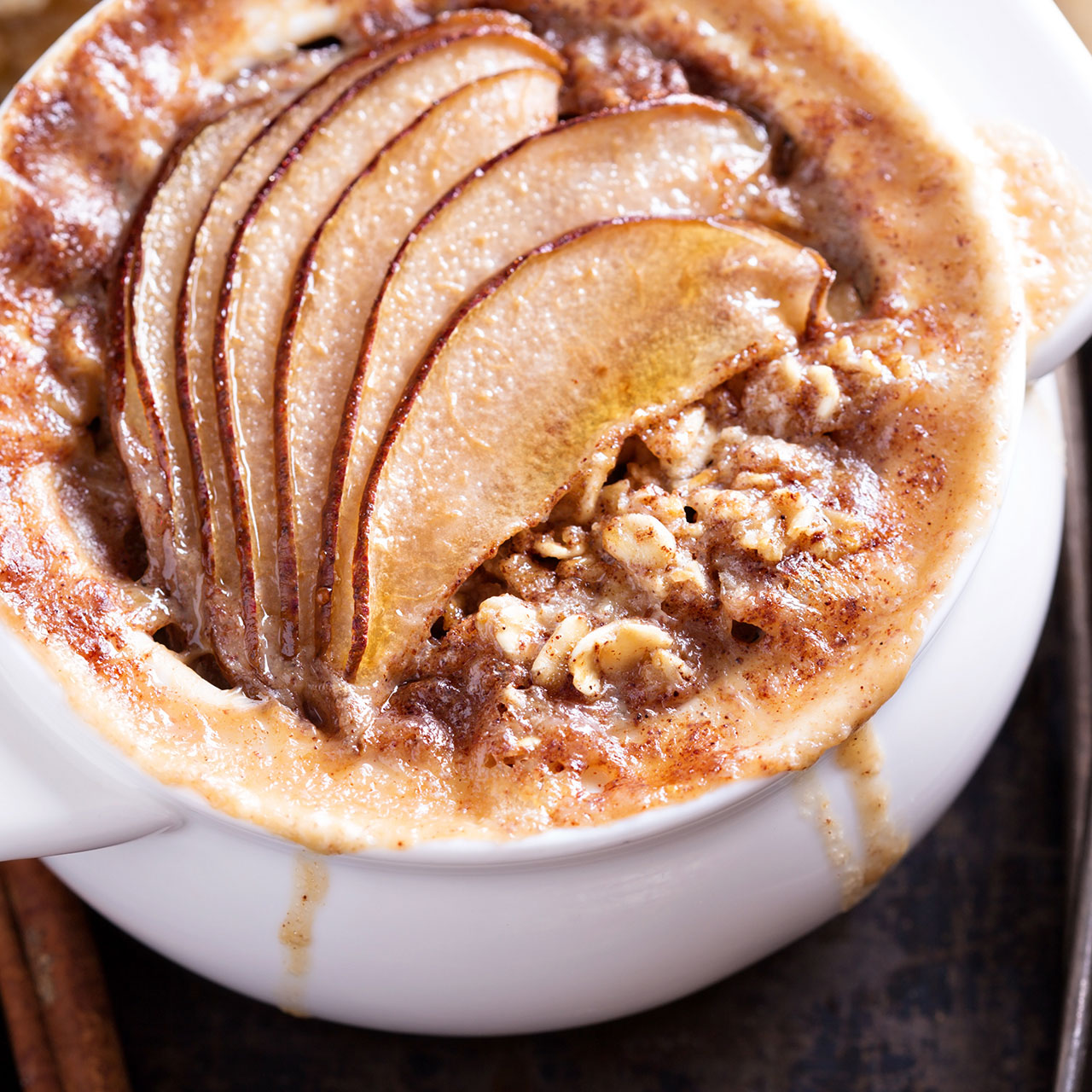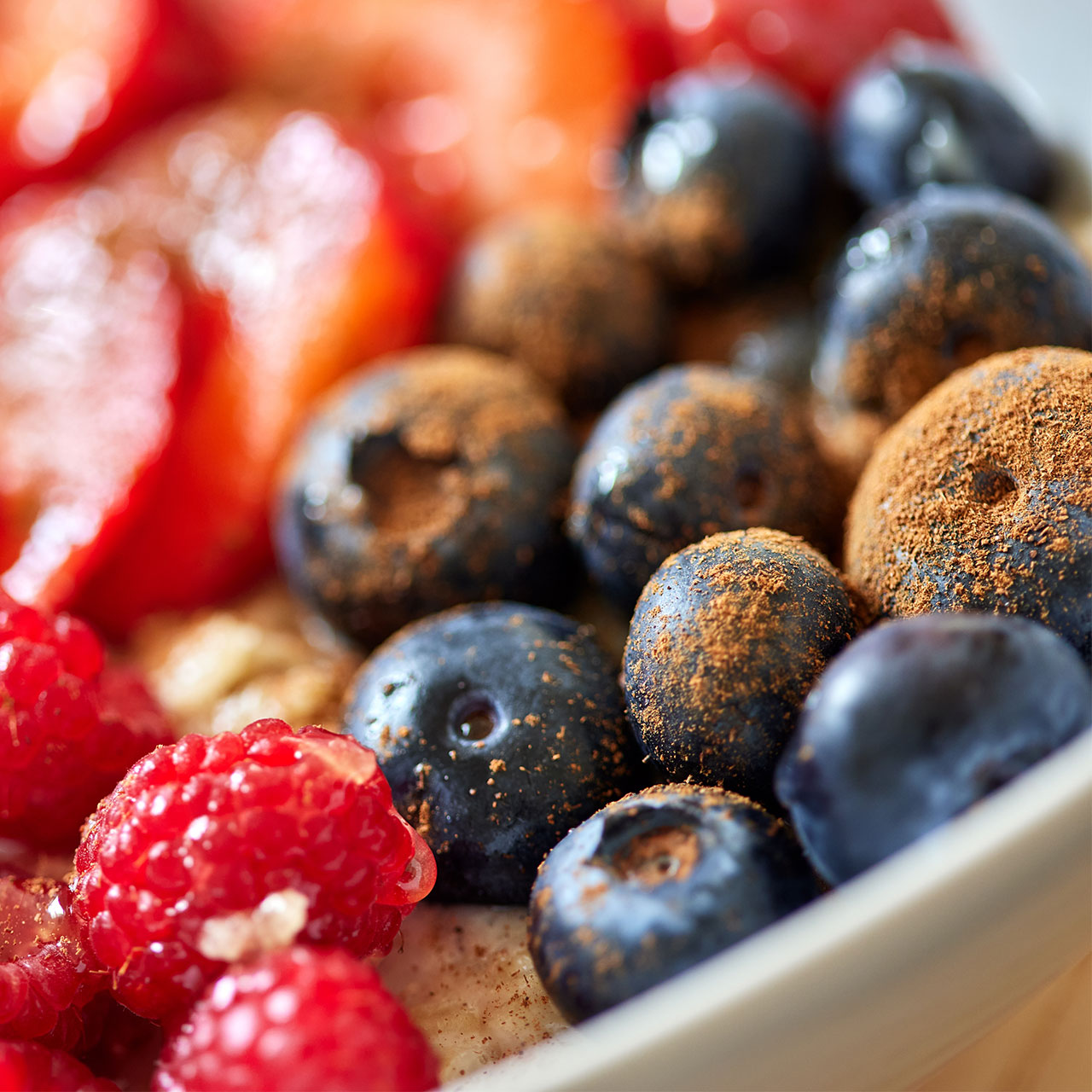This is an archived article and the information in the story may be outdated. Please check the time stamp on the story to see when it was updated last.
Many of us learned to rely on what was in our pantry for meals during quarantine. And while you may feel more comfortable venturing out to restaurants and supermarkets again, these habits formed during a year and a half of Covid can be difficult to un-learn. Before you head to your pantry or dry food shelves for your next meal, learn which items obesity doctors we spoke to warn against because of the bloating, discomfort and other GI issues they cause.

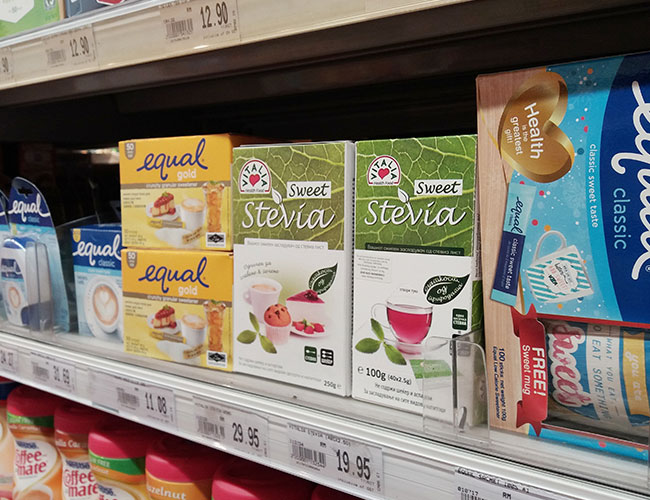
Sweetener
"The most popular food item people should avoid because it leads to bloating/discomfort and other GI issues is sweetener," Ricci-Lee Hotz, MS, RDN tells us. Hotz explains that while sugar has been "demonized" in recent years, sweeteners have taken over and secured their spot in many people's pantries. This may be fine for people who consume sweetener in small quantities, as it can be tolerated relatively well, people who consistently consume it may experience bloating, GI upset, and even diarrhea.
"While this can be consumed in small amounts, it is highly recommended to use a small amount of sugar or honey over a consistent high levels of sweeteners as our body tends to be better at processing sugar or honey than sweeteners," Hotz, who is the an expert with Testing.com, advises.

Sugar Alcohols
"One of the most common foods that cause bloating and gas are foods sweetened with sugar alcohols," board certified obesity doctor Robert Ziltzer, MD, of the Scottsdale Weight Loss Center tells us. Common in keto and low carb diet foods because they don't add to the carb counts of foods, these foods cannot be absorbed Dr. Ziltzer warns. "Sometimes the bacteria in our intestines break these foods down to water and carbon dioxide, causing bloating, diarrhea and gas." Yikes!
"I would keep people away from sugar alcohols that are contained in many diet foods and bars," weight loss physician and president of the Obesity Medicine Association Craig Primack, MD, agrees.
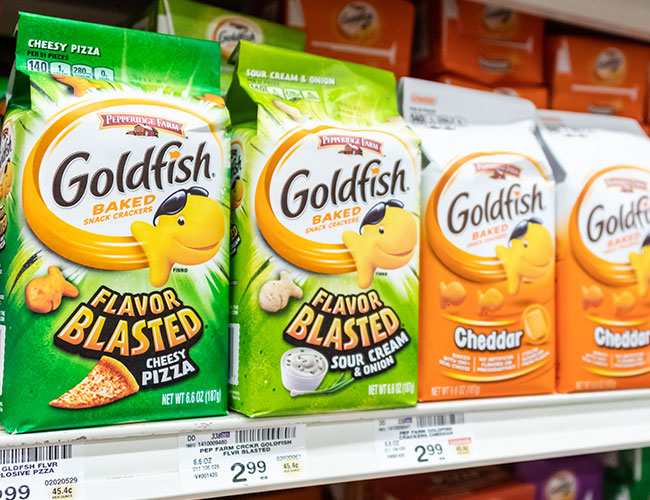
Goldfish
These salty snacks are problematic for a number of reasons, board-certified obesity doctor Amy Lee, MD, associated with Nucific tells us. To start, they contain 250 mg of sodium and 20 net carbs per serving--although few are likely to eat just one serving of these addictive snacks. "Oftentimes, we are told that sodium causes our body to retain water but in reality, both refined carbs and salt do the same," she warns.
Additionally, refined carbs, when eaten and not utilized or metabolized, can be an issue for the gut as well. "The glucose molecule can form into glycogen (in order to be stored into organs) and one gram of glycogen comes with 3 grams of water attached." Lastly, "processed foods that contains preservatives and color additives can also cause the body to bloat and lead to discomfort." Why? "The body has to figure out what these ingredients are before metabolizing it," she warns. "The body may view it as 'foreign' and react to it by retaining water."


















